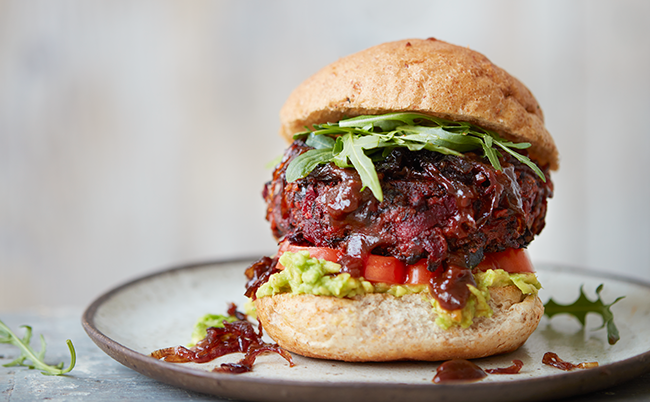New Report Highlights Evolving Trends in the Chinese Alt Protein Market in Low-Investment Post-Pandemic Era – vegconomist

A new report on the Chinese alt protein market landscape by Asymmetrics Research highlights a slower rate of investments in the sector (this year) due to difficult fundraising and unfavorable macroeconomic conditions. According to the report, the most recent investment deals have been in cell-based culture and fermentation startups.
In its third edition, the new report sets the market context and examines trends across key categories, offering updated information on the quickly evolving market in China’s post-pandemic era.
Asymmetrics Research’s 2021 report predicted rapid growth for the alt protein market in China, driven by flexitarianism and health, safety, and sustainability concerns. This year’s report has found that trends for the plant-based category still gravitate around health, with customers looking for discounts, while fermentation and cell-based foods are emerging in complex economic and regulatory scenarios.
Major trends mentioned in the report include the following:

Plant-based foods
Regarding consumer trends, the report highlights that middle-income consumers are now more cautious with spending, avoiding impulsive purchases, and seeking good value, particularly in everyday categories like food, clothing, and necessities.
Plant-based brands are targeting health and conscious eating. For example, plant-based milk and ready-to-drink beverages highlight having no cane sugar, with some having added functional ingredients. Meanwhile, consumers of plant-based meat and prepared meals have concerns over taste, mouthfeel, and clean-label ingredients — a growing food trend that brands should pay attention to, says the report.
“Key active” plant-based categories include plant-based milk, yogurt, ice cream, and ready-to-drink beverages. Plant-based meat, prepared meals, meat-free snacks, and protein-functional foods are also active categories. On the contrary, the research says that plant-based eggs, cheese, and cream categories show lower levels of engagement.
Plant-based ice cream has emerged as a new favorite. Its presence has expanded mainly due to Oatly’s ice cream launch in online and offline retail and at KFC. Plant-based yogurt companies are expanding forms and products; Yeyo and Doufei have introduced ice cream, and Jooma, an almond milk concentrate.
The findings show that plant-based meat companies are forgoing B2C channels to focus more on food service. Many brands have lowered product prices by 10-30% compared to a year ago, but traditional vegetarian brands have maintained prices.

Fermentation
Other production methods in the alt protein sector, such as microbial fermentation or precision fermentation, have gained growing interest. However, these technologies must overcome regulatory approval, expand product applications, scale production, and gain consumer understanding.
Products developed with these techs need regulatory approval under novel food ingredients and additives. In the space, Angel Yeast and Touyun Biotech (Triton’s Chinese partner) are listed companies, while the rest are startups.
The report shows that Chinese players in fermentation mainly focus on a single type of technology to make proteins or functional ingredients. Changing Bio and Blue Canopy stand out because they have biomass and precision fermentation technologies. Cultivated meat meat company CellX has also expanded to mycelium fermentation.
According to the report, some fermentation players have a diversified portfolio strategy, with products and applications for non-food areas such as cosmetics and biomedical industries.

Cultivated meat
Research has found that the number of companies in the production of cell-based foods has grown in the past two years. New startups have joined Avant Meats (HK), Joes Future, CellX, and Jimi Biotech.
Overall, investment in the sector has grown due to increased interest in the potential to produce products more sustainably. Even so, Chinese meat groups still need to invest or make acquisitions (Tyson, ADM, and JBS have invested in or acquired cultivated companies overseas), argues Asymmetrics Research.
According to the report, China’s cell ag companies mainly focus on meat and seafood. Pork is the most sought-after meat, followed by chicken and beef. Some have also cultured high-priced animal parts with traditional Chinese usage, such as fish maw by Avant Meats or Jimi Biotech’s deer antlers.
Reducing costs continues to be the main challenge of the industry. CellX and Joes Future have installed larger-scale pilot facilities and developed serum alternatives to reduce costs and reach commercial prices. Jimi Biotech has also developed a serum-free medium from soybean and corn extracts, highlights the report.
The report says the National Health Commission and China National Center for Food Safety Risk (CFSA) are working on a framework. However, there has yet to be a clear regulatory framework for cultivated meat.
“In the post-pandemic slower growth environment, alternative protein players with products in the market need to provide tasty and high-value offerings which fulfill specific consumer segments’ health and nutritional wants. In the longer term, new technologies of fermentation and cell-based culture, and blended products hold interesting possibilities,” comments Huiyi Lin, Chief Insights Officer, at Asymmetrics Research.
Asymmetrics Research’s new report offers a deep dive into each sector and has compiled fascinating expert quotes. For more information and to download the report, visit China Alternative Protein Products Market Landscape Report 2023.




